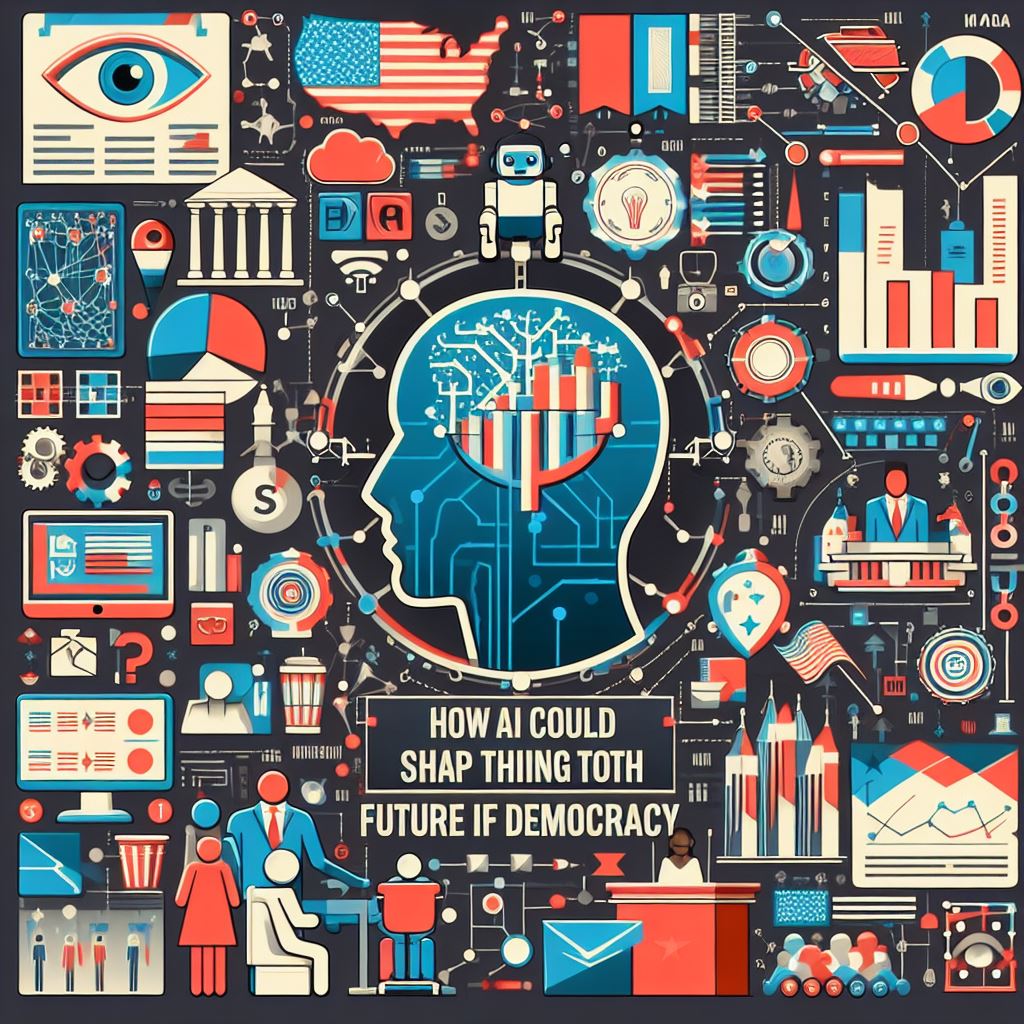Artificial intelligence (AI) is a powerful technology that can have profound impacts on various aspects of human society, including politics and democracy. As AI becomes more advanced and ubiquitous, it can potentially influence the outcomes of elections, the behavior of voters and candidates, the quality of public discourse, and the accountability of governments.
However, the effects of AI on democracy are not predetermined or inevitable. They depend on how AI is designed, deployed, and regulated, as well as how humans interact with and respond to it. Therefore, it is important to learn from the lessons of history, and examine how previous scientific breakthroughs have shaped the course of democracy, both positively and negatively.
One such example is the discovery of recombinant DNA (rDNA) in the 1970s, which enabled scientists to manipulate the genetic material of living organisms. This technology opened up new possibilities for biotechnology, medicine, agriculture, and environmental engineering, but also raised ethical, social, and political concerns
Some of the issues that emerged from rDNA research were the potential risks of creating new pathogens, the ownership and patenting of life forms, the environmental impacts of genetically modified organisms, and the implications for human dignity and identity. These issues sparked public debates, protests, and controversies, as well as regulatory responses and governance mechanisms, both at the national and international levels.
The case of rDNA illustrates how a scientific innovation can have both positive and negative consequences for democracy, depending on how it is used and governed. On the one hand, rDNA research contributed to the advancement of human knowledge, health, and welfare, and stimulated public engagement and participation in science and policy.
On the other hand, rDNA research also posed challenges and threats to the public interest, safety, and trust, and created inequalities and conflicts among different stakeholders and interests. The balance between the benefits and risks of rDNA was not given, but rather negotiated and contested through democratic processes and institutions.
Similarly, AI can have both positive and negative impacts on democracy, depending on how it is developed and applied. On the one hand, AI can enhance democracy by improving the efficiency and effectiveness of public services, increasing the transparency and accountability of governments, facilitating the access and dissemination of information, and empowering citizens and civil society.
On the other hand, AI can also undermine democracy by manipulating the outcomes and integrity of elections, influencing the opinions and preferences of voters and candidates, undermining the quality and diversity of public discourse, and eroding the privacy and autonomy of individuals and groups. The balance between the opportunities and challenges of AI is not predetermined, but rather influenced and shaped by human choices and actions.
Therefore, it is crucial to learn from the lessons of history, and adopt a proactive and responsible approach to the development and governance of AI, in order to ensure that it serves the public good and respects the democratic values and principles. This requires the involvement and collaboration of multiple actors and sectors, such as governments, researchers, developers, users, civil society, media, and international organizations, in creating and implementing ethical, legal, and social standards and norms for AI.
It also requires the education and awareness of the public, as well as the critical and informed engagement of citizens and voters, in the use and oversight of AI. By doing so, we can harness the potential of AI to enhance and strengthen democracy, rather than to weaken and endanger it.
AI is a powerful technology that can have both positive and negative impacts on democracy, depending on how it is designed, deployed, and regulated. The article draws parallels with the case of rDNA, a scientific breakthrough that also had both benefits and risks for democracy, and argues that we need to learn from the lessons of history, and adopt a proactive and responsible approach to the development and governance of AI, in order to ensure that it serves the public good and respects the democratic values and principles. This requires the involvement and collaboration of multiple actors and sectors, as well as the education and awareness of the public, and the critical and informed engagement of citizens and voters, in the use and oversight of AI.


Hi i think that i saw you visited my web site thus i came to Return the favore I am attempting to find things to improve my web siteI suppose its ok to use some of your ideas